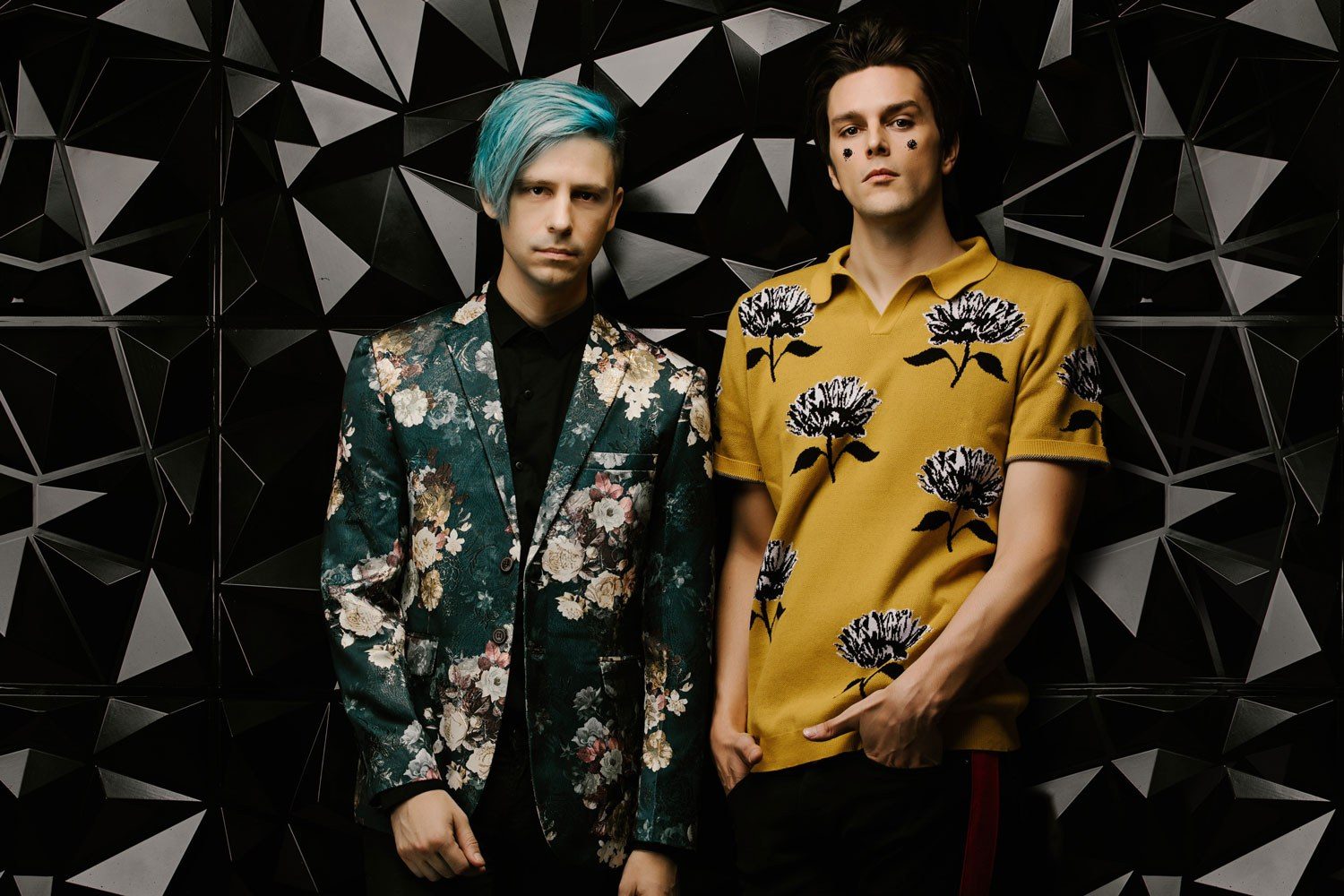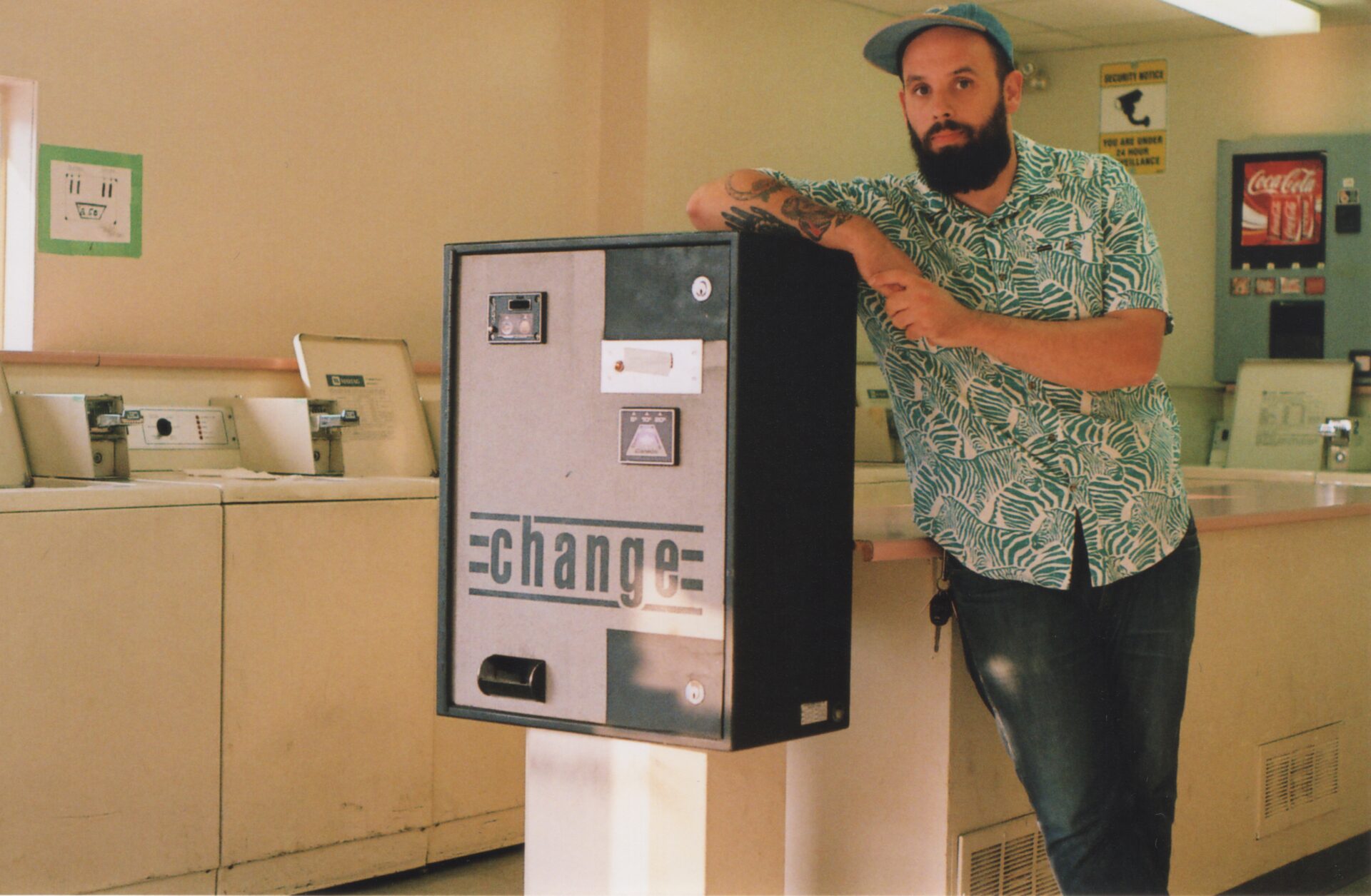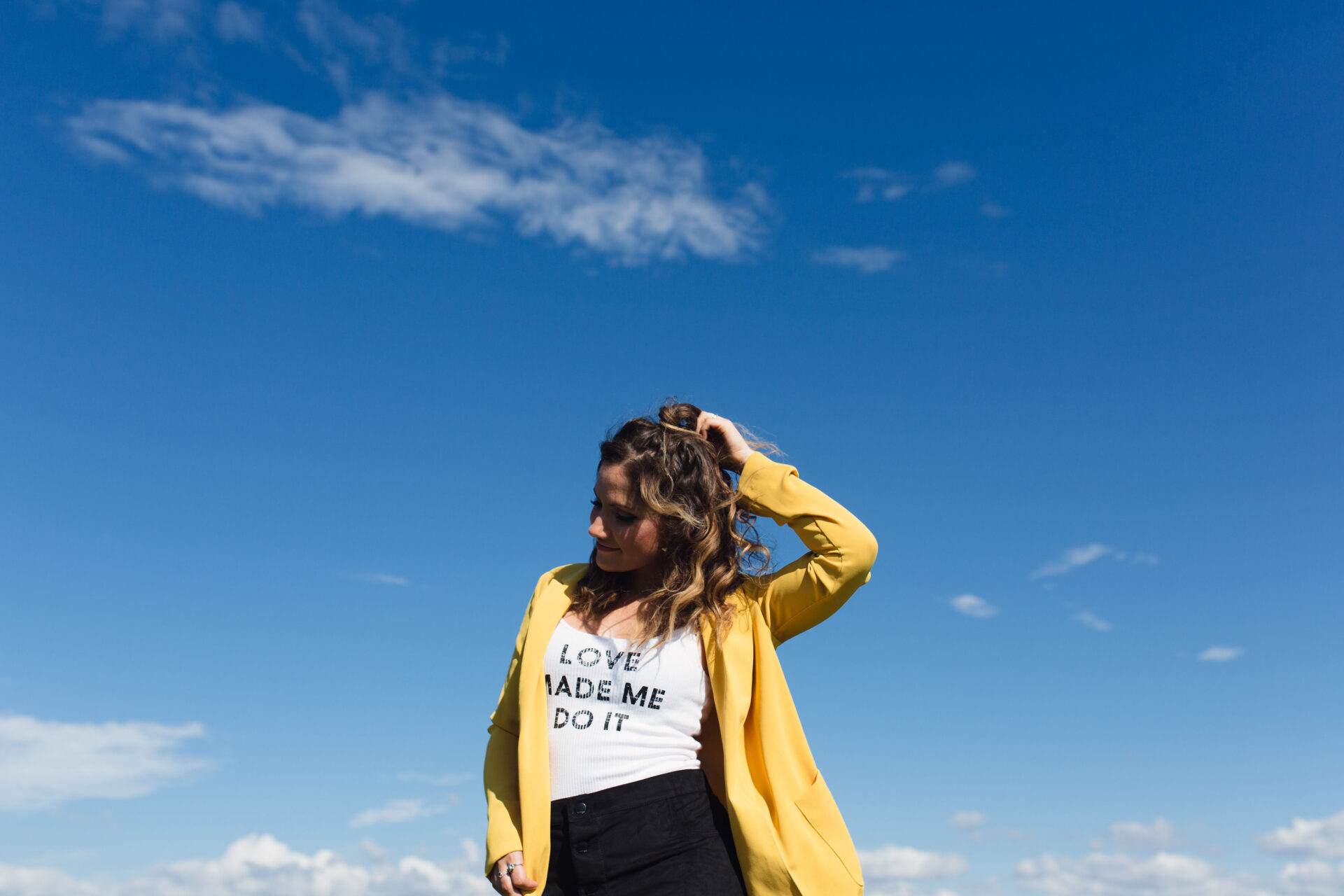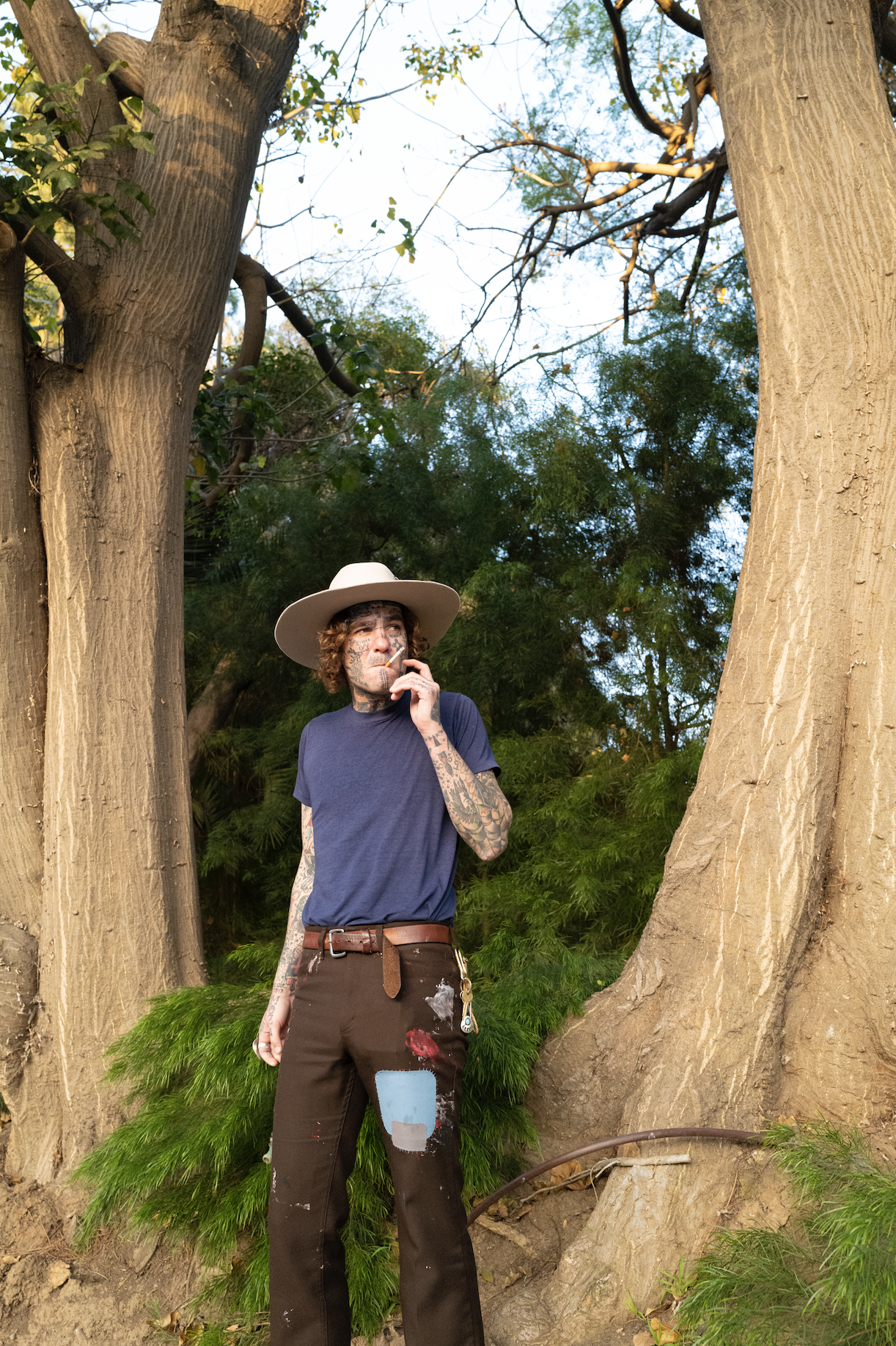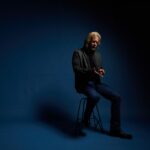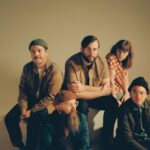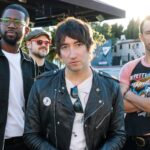Rising duo I Don’t Know How But They Found Me (abbreviated iDKHOW) — comprised of Dallon Weekes and Ryan Seaman — have been taking the world by storm lately. It’s been somewhat of a quick, meteoric rise that has been pleasantly surprising for those involved, all things considered.
By that, it’s not for a lack of talent in iDKHOW — far from it, actually. Both Weekes and Seaman had previous success with prior projects (Panic! at the Disco and Falling In Reverse, respectively) and even worked together on The Brobecks nearly a decade ago. All of this to say, there is undeniable talent and chemistry between the duo. The “surprise” to the sudden success of iDKHOW comes from the band’s mysterious start to where they outright denied the band’s existence, despite performing shows and there be photographic evidence that showed otherwise.
It was a masterful idea that continued to draw attention and build hype around the project. The reason for keeping iDKHOW a bit of a secret — which the Weekes and Seaman expand on more in our interview below — was to let the project stand on its own leg. There is no embarrassment for their past, only the desire to make iDKHOW a project that is entirely them, and only them.
When iDKHOW became an “official’ project, they quickly released singles, and it didn’t take long to garner attention from Fearless Records. They signed with the label, released 1981 Extended Play, and just wrapped up a handful of radio shows as “Choke” continues to impact alternative radio.
Check out our recent interview with Seaman and Weekes below, chatting about the band’s start, their dynamic relationship, and what the future holds for iDKHOW.
Substream: I know it’s probably a long story and you’ve probably been asked a bunch, but just for this piece here, can you provide a bit of a background on how I Don’t Know How, just originally came together and became an “official project”?
Dallon Weekes: We started in secret when we were both employed in other bands, just as a way to have a creative outlet to make music on our own without having rules or a person behind it. Started booking shows in secret to see if the music we were making could stand on its own. We wouldn’t really tell fans what we were doing and would just sort of deny our existence for about a year.
What was it like, originally, for you both coming out of previous projects, having success there, and then almost kind of hitting the reset button?
DW: Yeah, it was fun to be able to play that game for a while and just deny our existence. As fans caught on, it was obvious. The whole process of denying it and lying was fun. Taking that approach was sort of invigorating to both of us, because with the way the music business is right now, you’re constantly being sold something every time you turn around, listen to this, subscribe to this…so taking the opposite approach and challenging people to come and find us was great. Luckily it worked out, but when it came time to acknowledge it, it was really validating because we had no expectations other than to have fun and be creative. We uploaded the lyric video at my kitchen table and it just took off from there.
It was a lot more work because from the time we decided to undertake this, we were working for ourselves, there was no team, no anybody. It was just the two of us, strictly DIY, a lot more work but a lot more rewarding. More control, and less people to filter it through.
Was it any different knowing that this time you had, I guess more control over the overall project and theme behind it?
Ryan Seaman: Yeah, I guess so. With Dallon and I, we were in a band together like ten years ago called The Brobecks, we’re kind of taking off from there. He and I never really have been out of touch. I’ve recorded some songs for Dallon, we’ve always been in touch. It’s really exciting to say the least. I’ve never been in this kind of position before, so it’s new, but it’s great.
How’s the dynamic work between you two, in terms of the band itself? Especially taking it on as a duo and sharing the project with only one other?
DW: We never really made a conscious decision to make a two-piece band. We wanted to be able to throw a show together and continue the display as easily and conveniently as possible.
RS: I mean it almost feels the same. He’s a really easy going person. He’s very logical in thinking, there’s no fights ever, it’s great. It’s probably one of the most boring things, there’s no crazy deals going on. It’s great though. We can get together and jam or pump material out. We usually do it in Los Angeles where I live or in Utah where Dallon lives and it works things out. It’s great.
It seems like the project, especially based off the music videos, has a specific kind of vision/concept or aesthetic, is that inspired by anything in particular?
DW: All of the aesthetic stuff was me trying to recreate what it was like to discover bands and music when I was a kid. I was born in 1981, I got to see the birth and evolution of MTV, that’s how you discovered new stuff. If you happened to come across something and it clicked with you, you probably wouldn’t see it for another 2-3 weeks, so you had to go out and find it. You had to go to a book store and do some footwork, I think having to put that effort forth made things a little more meaningful to you because you had to put work in to find that new thing that sparked something in you.
RS: I feel like he came up with a lot of things, it came very naturally to him. I feel like he wanted to chase something, like you and I were talking about discovering something earlier, we just want to bring back, it’s kind of like a story about a band, I think that’s a really cool idea instead of just throwing something out there and kind of hoping it works. I used to love discovering things, like back in the day you had to discover bands by like MTV, or you had to do all of these things, you had to find the stuff. I feel like today it’s even more so, like the internet is so saturated. I feel like this is the way we’d want to present it anyway, so we’re having a great time.
What about the music? Not to keep comparing to previous bands, but has your past experiences in music affected how you write for this project or anything of that sort?
DW: Musically I would say so, because the bands we were both with were both really great jobs, but maybe not the music we wanted to be making. To be orbiting around those entities and businesses, you sort of pick up on things or see things that work and things that don’t work, so you might be able to pick and choose things that you might want to apply to your own projects. Musically speaking, they’re not really similar. I wrote music and lyrics for Panic!, so there might be some similarities. The biggest challenge for a band like us is building credibility, which is why we started in secret. We wanted it to stand on its own. We didn’t want to exploit the bands we were in or those fans.
RS: Absolutely. I think because we’ve been in other projects before and have learned different things up to this point. It’s really exciting because if I hadn’t been through any of my past experiences with previous bands, it may not turn out the same way, you never know. We literally started this in secret, it came out of an idea. It’s exciting to see it unfold. Sometimes I feel like it can take bands years to get where we are now, and I don’t take that for granted. It took me seventeen years to be an overnight success.
iDKHOW became an “official” project just in 2017, and then around a year later the signing to Fearless Records happened. How did that come together, and knowing Fearless, I’m sure they’ve been great to you guys right?
DW: It was a long process because we had several labels come our way, but when it came down to Fearless, they offered us 100% creative control and to us that was the most important thing we could ask for. It was a challenge in the past whenever I was working for or writing for other artists; you have these ideas and they get sent out and filtered through these camps and a dozen or more people, and by the time it comes out the other side it ends up being this thing you maybe don’t like as much. That was always really challenging for me to do. It’s nice to be able to not have any in betweens anymore. Diluting your ideas or misrepresenting or filtering the meaning, that’s always been really frustrating.
RS: I mean, again, I hate to say it, but 9 times out of 10, bands fail. Going into this, I don’t think we knew what the expectations were gonna be. We knew people were gonna check us out because of the previous projects we were in, but also that people were probably not gonna check us out for that same reason. That’s why we wanted to do this pretty quietly. Fearless has been a great team. They definitely know how to push a product and market bands. I like Bob (Becker, founder of Fearless Records). He’s just a normal guy, listening to music, and I can just talk to him. That, for me, would be attraction to Fearless. It wasn’t paid by numbers, it was like, here’s a band and we care and we’re gonna push them. A lot of labels, it’s analytics, they don’t care about the bands or the people. They’re very artist friendly and it was very important to us to have 100% creative control. When you sign to some labels, you might not get any control, and that’s okay, that works for some people, but that wasn’t what we were trying to do. We knew we were gonna turn some heads with the type of band we were, there are some guys that leave their bands and try to do another band and no one gives a shit. It’s true, like, here today, gone tomorrow. I’m just taking this time and really trying to live in the now and it’s really hard because we’re playing catch up with ourselves a lot. I’m trying to enjoy what’s happening and what’s happened. It’s still really crazy right now.
The EP seemingly did really well, critically speaking, and even Billboard charting speaking. You both have pretty devoted fan bases, which of course is a nice thing to bring into this project here. But, did that kind of quick success surprise you at all?
DW: Everything we’ve done so far has been a huge surprise to us. We never really had any expectations other than to just have fun creating music, creating art. I think that any time you have a chance to do that, it’s already a win, but when people respond to it and grab onto it, it’s an amazing bonus to have. Anything that has happened to us has been incredible in every way.
“Choke” was a single that you guys released previously, then Fearless re released it as a single, and now it’s getting some attention on alternative radio, you’ve been doing this radio tour too, is that a surreal feeling watching it all take off this way?
DW: It’s pretty surreal. I’ve heard the song on the radio 2 or 3 times now, it’s just happenstance I’m in the car taking my kids to school or getting Taco Bell, I can’t help but smile. It’s an amazing experience. It’s really cool to be able to create something without compromising something.
RS: I think the most surprising thing is just people finding out who we are just from that. There are so many bands in the world, and we are just in a small percentage of bands that people are paying attention to. It’s all really crazy, I think. It really hit me when I was in Miami, I got picked up at the airport and turned on the radio and heard our song. It doesn’t feel real sometimes. Especially if you’re on the inside. If you’re on the outside, it’s just different. It’s a really weird feeling, it’s cool though. It’s super crazy how, my last band, if I went out in public, I would never get pointed out. Now it happens more than usual. If I go to the bar, the movies, the grocery store, people will come up to me now. It’s a little weird if you’re a person that’s not playing music. I just view myself as a regular dude, and when someone knows what I do, it kind of strikes a chord with me. It’s wild. I don’t know how I’d describe it.
What do you, as a professional and someone that’s been in music for a long time — of course even before Panic and Falling In Reverse — and now having to take off with a new project, think the most challenging thing is, in this day, about music now?
DW: The challenge for me was always the pursuit of wanting to do music as a career, because there’s not a lot of money in it. If you’re in the music business to be a rock star and a billionaire, you’re in the wrong business. That was always the challenge for me to pursue that while also holding down regular jobs and taking care of a family. A good 3-4 years [into] playing with Panic! I was still working regular jobs between tours, cleaning carpets or working plant nurseries. I’ve only really been able to be a full-time musician for the past 5 years, and that’s been a huge blessing to be able to focus on making music and not having to worry about how I’m going to pay the gas bill. It’s huge. It was really, really tough for a long time.
RS: The credibility. I say that because with a project like this, people are probably going to have preconceived notions before they listen to it. That’s one of the challenges you face when you come from a job you’ve done for so long. I am being known more for this than anything else, which is great. I’ve been a touring drummer and stand in for bands for the past seventeen years now. One of the first tours I went on was Warped Tour and that kind of just opened my world to a lot of different things. I think going into this it’s definitely the most rewarding, I don’t have a lot to worry about these days. All of my problems are personal problems.
Is there anything in specific here, that you’re really hoping to accomplish and achieve with iDKHOW?
DW: Several short term goals that I have that I can’t really talk about a lot yet, but the big picture goal for me is to create something that has a moment of cultural significance or something that people are still listening to long after I’m gone.
RS: It’d be really sick if we were on Saturday Night Live or something. That’s a milestone. Or play, like, main stage at Reading & Leeds, Coachella. Lots of things I want to do. I feel like, with music, it’s like when you climb up a mountain and you look down, you’re like, “hell yeah” and then you look behind you and there’s so much left to climb. We’re just going. I’ve never been like, on the radio before, ever. It’s really cool that all these different sides of music I’ve never seen. I’m so used to the DIY method. Everyone’s always said, do it by yourself for as long as you can, but after a certain point we couldn’t anymore and had to bring on some help. It’s a good problem to have. Always come from the school of yourself, because you’ll always do it right yourself.
What’s up next? I’m assuming more music, tour, all of the fun stuff right?
DW: Yeah, we’ve got some more radio promo we’re doing and I think some overseas stuff in the summer time. A lot of touring supporting the EP, but between those, when I get the chance to breathe, writing and recording more stuff to get a full length album out there.
RS: I don’t know if I’m allowed to say, but I will say we want to keep playing shows. We’ll keep writing, we’re always writing. There’s no plan of like a release for a full length yet just because I feel like we haven’t really toured, we’ve just done a few shows. We did a US tour with Waterparks, which was a really fun tour, they’re awesome. I just can’t wait to get out there for real. I love playing music, I love being in it, it’s what I live for, it’s who I am. I hope we continue that and I hope people will stick around long enough to care.

